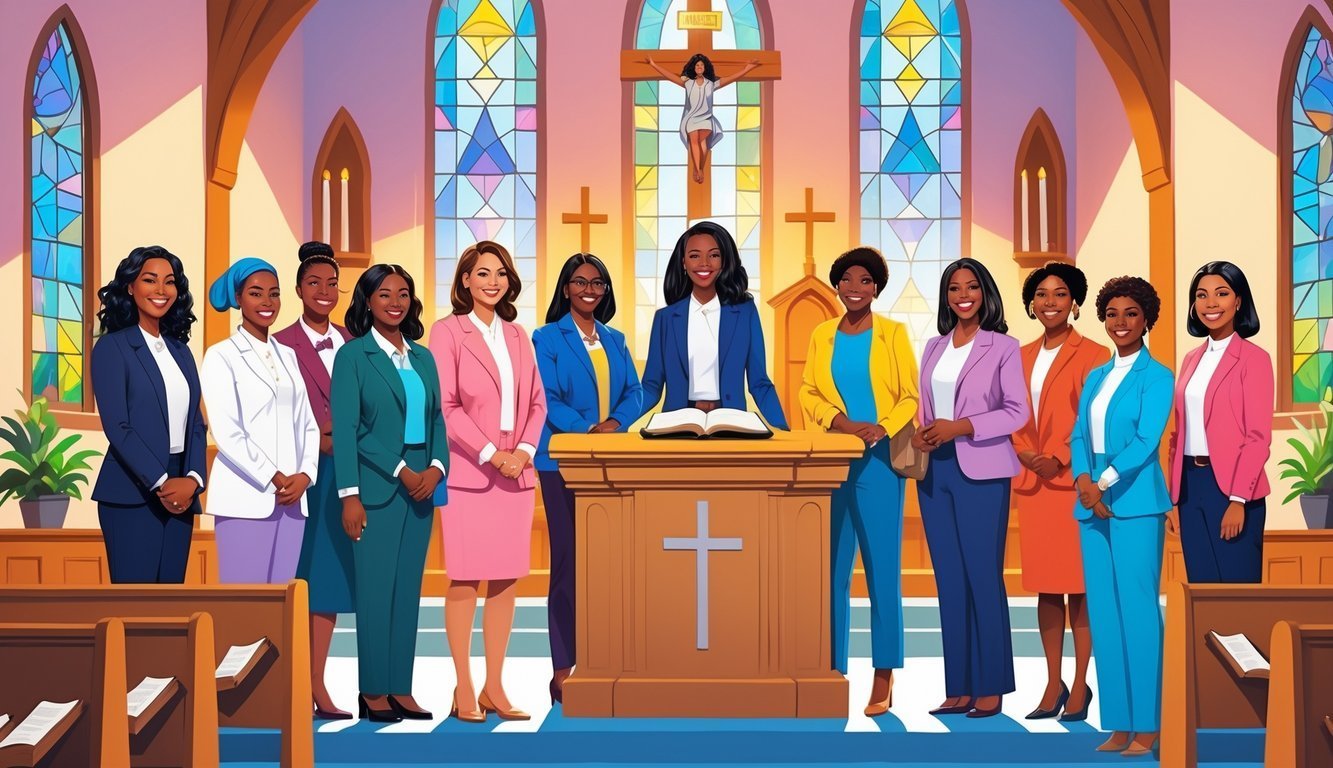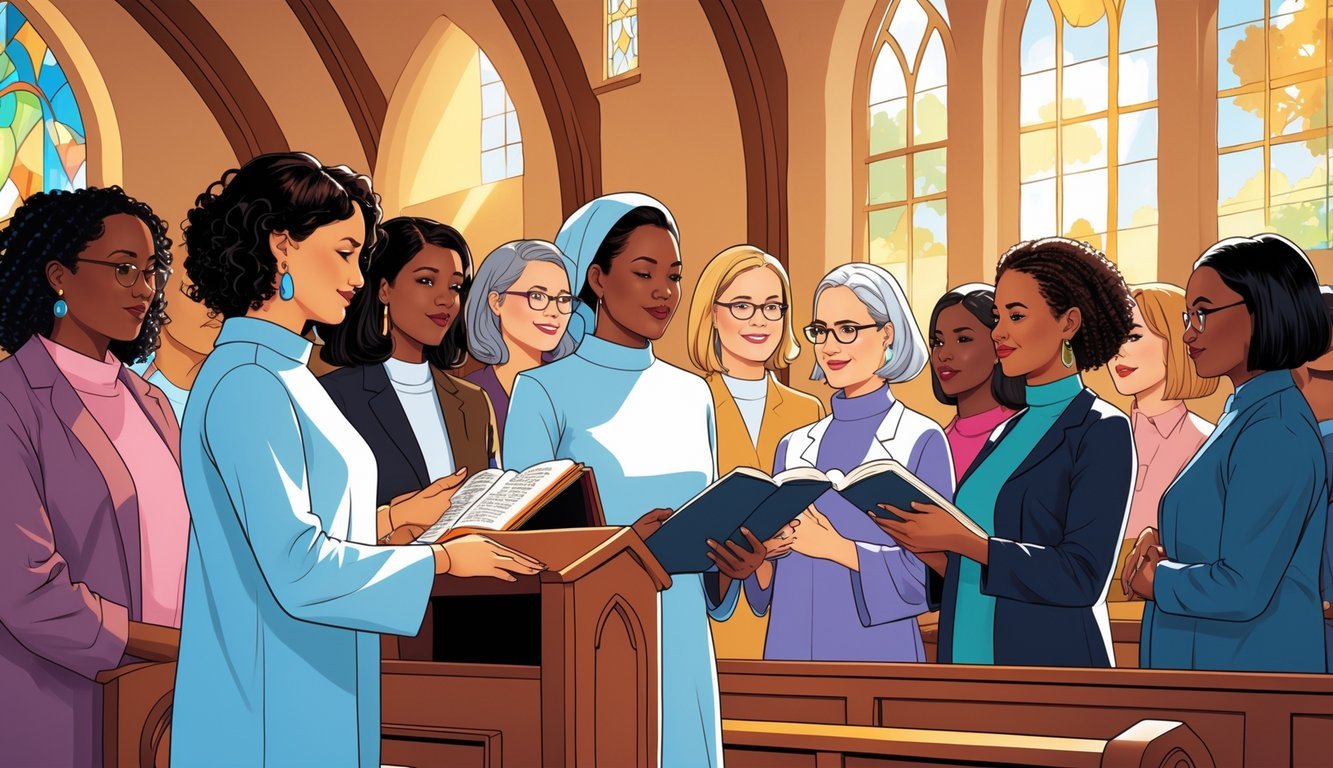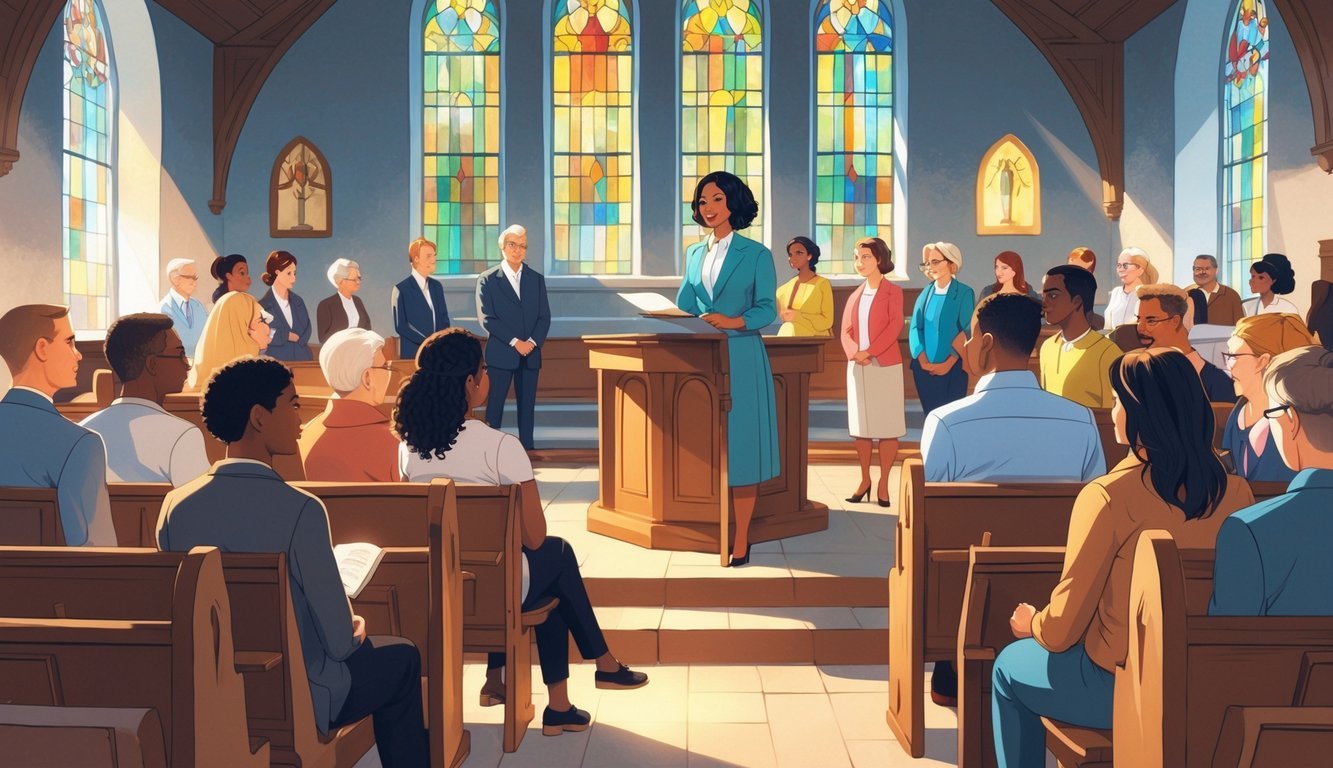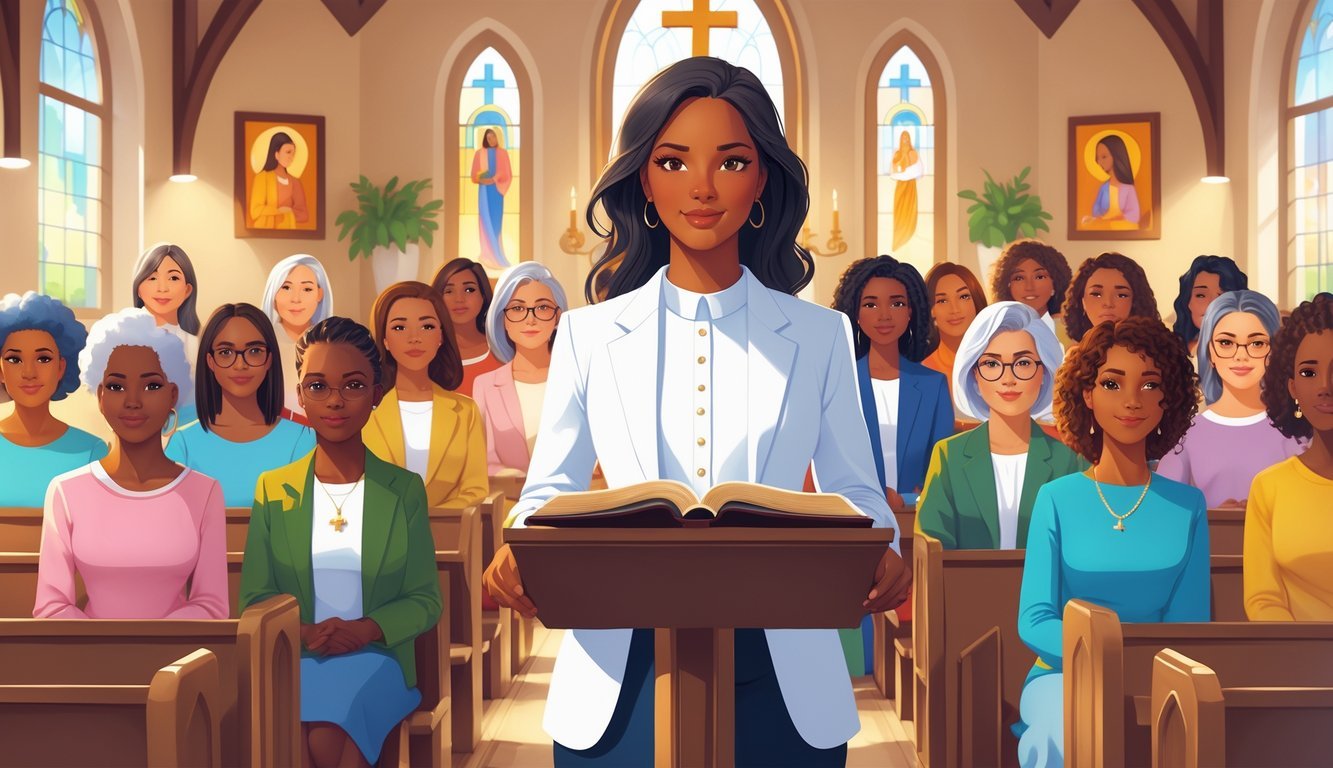Physical Address
304 North Cardinal St.
Dorchester Center, MA 02124
Physical Address
304 North Cardinal St.
Dorchester Center, MA 02124
The debate on women's roles in church leadership varies widely among denominations, with interpretations of scripture influencing acceptance or rejection of female pastors.

The question of whether women can be pastors definitely sparks a lot of opinions. Some churches welcome women as pastors, but others believe the Bible limits women from holding certain leadership roles over men in the church. It gets confusing fast, since different groups read scripture in their own ways.
Maybe you’re wondering what the Bible actually says about women in pastoral roles.
Some passages seem restrictive, while others look more open to women teaching and leading.
Depending on the church you attend and its traditions, your experience might be very different.
Understanding these views helps explain why this debate won’t go away.
Whether you’re exploring faith or thinking about church leadership, it’s worth learning both sides before forming your own opinion.

Views on women as pastors really depend on how people understand certain Bible passages.
Some folks focus on women’s roles in the Bible, while others zero in on specific verses about authority and teaching.
The culture and setting of early churches shape how people read these passages today.
Several Bible verses come up in this conversation. 1 Timothy 2:11-12 stands out, where Paul says women shouldn’t teach or have authority over men.
Some take this as a clear rule against women leading churches or teaching men.
But other passages show women leading and teaching. Deborah was a judge and leader in Israel (Judges 4-5). Priscilla helped teach Apollos (Acts 18), and Phoebe was a deacon (Romans 16:1).
It really depends on whether you focus on Paul’s rules or on examples of women’s ministry.
In the Old Testament, women like Miriam and Huldah served as prophetesses, sharing God’s messages. Deborah led Israel as a judge.
These women held significant spiritual roles.
In the New Testament, women helped spread the gospel.
Mary, the mother of Jesus, supported his ministry.
Some early churches had women leading groups or serving, though formal leadership roles like elder or pastor usually went to men, partly because of the culture back then.
The Bible ties authority and teaching closely in church leadership.
Paul says elders and pastors must teach sound doctrine, which traditional views usually assign to men.
1 Timothy 2:12 is often read as saying women shouldn’t teach men or hold spiritual authority.
But then there’s Galatians 3:28, which says there’s no difference between men and women in Christ.
Some Christians think this supports equal roles in ministry, even pastoral leadership.
How you balance these ideas depends on whether you see Paul’s instructions as cultural or as universal.
Paul’s instructions often reflected the culture of the Ephesian and Corinthian churches.
Back then, women’s public behavior and speech had special social meanings.
Some rules, like not teaching men, may have addressed problems unique to those communities.
The order of creation and family roles, like marriage and submission (Ephesians 5), also influence how people understand authority.
The Bible shows both unity and diversity in roles, so things can look different today than they did in the Greco-Roman world.

Churches and cultures handle the question of women pastors in very different ways.
Some churches have strict rules about who can hold authority, while others welcome women in all leadership roles.
The debate involves scriptural interpretations, how families and church members respond, and what it means for worship and ministry.
Rules about women pastors vary a lot between denominations.
Many Baptist and Pentecostal groups don’t allow women to be senior pastors, believing the Bible restricts women from teaching or having authority over men.
Other denominations, like some Methodist or Anglican churches in the UK and EU, ordain women fully and accept them as senior pastors and church leaders.
Some traditions let women serve as deacons or in ministry roles but don’t allow them to lead the whole church.
Each denomination sets its own qualifications for ordination, which affects whether women can preach, pray publicly, or perform sacraments.
These differences shape what you’ll see in church services and leadership teams.
When you look at the debate, two main sides come up.
Those against women pastors often point to Bible verses that seem to forbid women from holding spiritual authority over men.
They worry that allowing women to pastor could go against God’s design for church leadership and family roles, with husbands as head of the household.
Supporters argue that plenty of Bible passages show women teaching and leading with God’s blessing.
They say the restrictions were for specific cultural settings and don’t apply today.
Supporters also focus on education and spiritual calling over gender, believing women pastors can serve effectively without harming church unity or worship.
| Argument Against | Argument For |
|---|---|
| Biblical passages restrict roles | Bible allows women to teach |
| Concerns about authority roles | Focus on calling and gifts |
| Upholding traditional family roles | Women enrich ministry and leadership |
When women serve as pastors, worship styles and church life often change.
You might notice different preaching voices or prayer leadership, which can bring new perspectives.
Some congregations say women pastors help create a more welcoming and inclusive atmosphere.
In family life, the debate touches on how husbands and wives relate, especially in churches that stress male leadership.
Some people worry women pastors disrupt traditional family roles, while others believe good ministry by women strengthens both family and church.
Congregations led by women often focus on spiritual growth, salvation, and community prayer.
No matter the stance, people care about respect, teaching truth, and honoring God’s charge in the church.

People have lots of questions about women serving as pastors.
You might want to know what the Bible says, how different churches see this, and who the early female leaders were.
Some Bible verses, like Romans 16:1, talk about women in important roles.
Others, like 1 Timothy 2:12, say women shouldn’t teach or have authority over men.
Different groups interpret these verses in their own ways.
Christianity doesn’t have a single view.
Some churches allow women to be pastors, while others don’t.
The choice usually depends on how they interpret the Bible.
Think about how the church teaches the Bible and whether the pastor helps you grow in your faith.
It’s okay to ask questions and learn more about what you believe.
The Bible mentions Philip’s four daughters who prophesied (Acts 21:9), but it doesn’t give a clear record of the first female preacher.
Women like Deborah and Priscilla also played important leadership roles.
Most churches just use the word “pastor” for women leaders.
Some also use “minister,” “elder,” or “preacher,” depending on the role and tradition.
People in Christian communities definitely don’t all agree here.
Some folks point to Bible passages and say women shouldn’t be pastors, especially when it comes to authority.
Others see things differently and support women taking on leadership and ministry roles.
Honestly, it depends a lot on the church and how they interpret scripture.